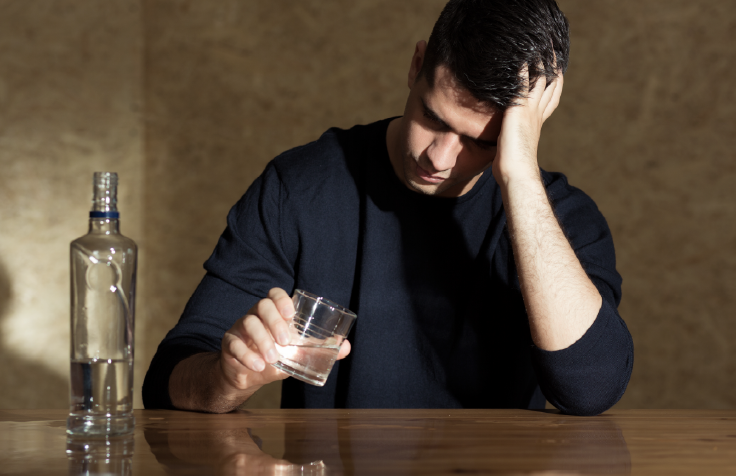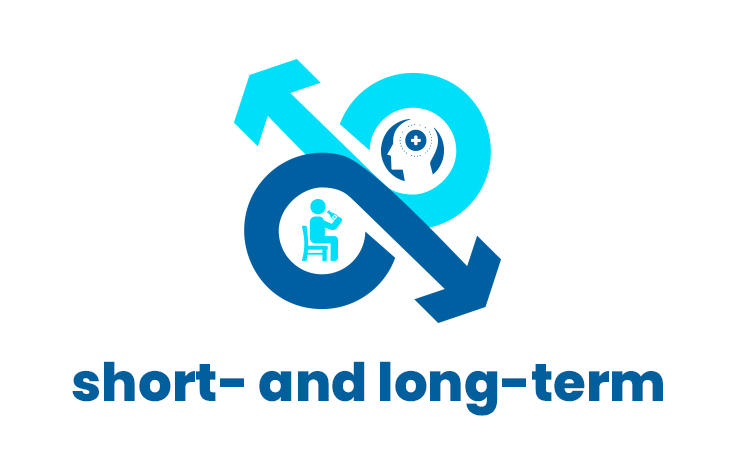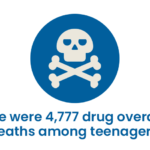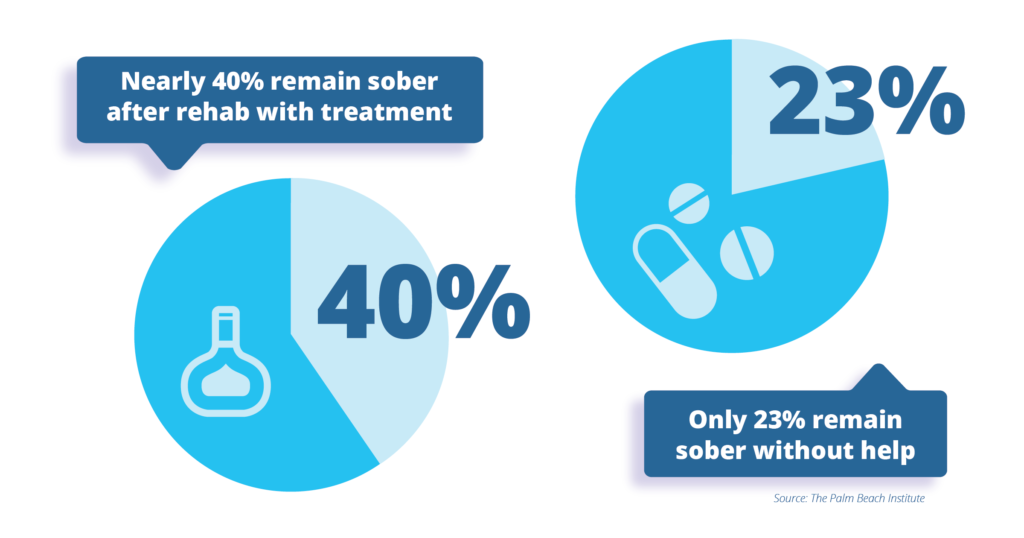
Alcohol abuse treatment programs are designed to help a patient recover from a substance abuse disorder in the safest, most comfortable way possible.
According to the National Institute on Alcohol Abuse and Alcoholism, over 14 million adults ages 18 and older have alcohol use disorder, and 1 in 10 children live in a home with a parent who has a drinking problem. Alcohol rehab is an essential part of the recovery process, as it provides people with the knowledge and tools necessary for getting back to a healthy lifestyle and preventing the negative consequences of addiction.
If you or a loved one is struggling with an alcohol use disorder, The Haven treatment center can set up a treatment plan catered to your specific needs and guide you toward the path of recovery, contact us today.
Types of Alcohol Addiction Treatment Programs
There are many treatment programs available for alcohol addiction. All of these treatment approaches can be broken down into three categories, talk therapies, self-help groups, and medication.
Patients struggling with substance use disorder will often go through some sort of behavioral therapy and take medication alongside treatment to alleviate symptoms of withdrawal or deter them from drinking.
After completing their therapy with the addiction center, it is highly recommended they attend some sort of support group to maintain their sobriety. Learn more about these different types of substance abuse treatment programs below:
Behavioral Therapy
This is a common type of treatment involving therapy that is used to treat mental health conditions and other mental health issues. The aim of behavioral therapy is to identify the problematic behavior patterns of an individual and provide them with the necessary resources and skills for managing their behaviors. There are a few different types of behavioral therapy including cognitive behavioral therapy, dialectical behavior therapy, motivational enhancement therapy, and others.
Support Groups
Self-help groups are therapy sessions that involve a group of individuals who struggle with a similar problem. These sessions are often led by a mental health professional and are the best way for a patient to receive support from their peers.
Family therapy is also available for family members concerned about their loved one’s drinking patterns. Some common examples of support groups are Alcoholics Anonymous, a safe place where patients can share personal experiences related to alcohol abuse and SMART, a group therapy that focuses on self-empowerment.
Medication
Medications are often used alongside treatment to alleviate withdrawal symptoms of alcohol or drug abuse, or to create a deterrent to drinking. For example, Antabuse, also known as disulfiram, is a common addiction medicine that works by causing a severe adverse reaction in someone who has taken the medication and drinks alcohol, causing them to vomit.
Levels of Care for Alcohol Use Disorder
Every patient is different, so treatment for alcohol and drug addiction is catered to the unique needs of every individual instead of one-size-fits all. Learn more about these different treatment options below.
Inpatient Treatment
Inpatient also known as residential treatment, is the most intensive level of care as it involves 24/7 access to medical care from medical professionals as well as clinical management to help manage the symptoms of withdrawal.
After a person has completed the detox phase of their treatment, they will live full-time at a rehab facility and receive group counseling, holistic approach therapies, and medication management as well as other services.
The best thing about inpatient rehab is that it can provide a safe environment free from triggers and negative emotions the person would feel at home. The length of alcohol rehab can range from a couple of days to a year or more, depending on the specific needs of the patient.
Below are some of the most common lengths of inpatient rehab:
- 30-day alcohol rehab programs
- 60-day alcohol rehab programs
- 90-day alcohol rehab programs
- Long-term alcohol rehab programs (120 days or more)
Outpatient Treatment
Outpatient programs are the most flexible type of addiction treatment program, as it allows people to live at home. This treatment involves the participants returning to the outpatient facility periodically for counseling therapy, 12-step programming, as well as other recovery services. This type of alcohol abuse disorder treatment is recommended for individuals who are stable enough and have a high level of motivation in their recovery journey. If you are concerned about the cost of outpatient treatment, take time to research outpatient facilities that will work with your health insurance.
Partial Hospitalization
It is common for individuals who have completed an inpatient rehab program to be transferred to a partial hospitalization program for their addiction recovery. Partial hospitalization involves an individual living in traditional housing or sober living homes while they attend classes and therapy sessions, as well as appointments for medical support from professionals. These types of treatment programs tend to last around two weeks.
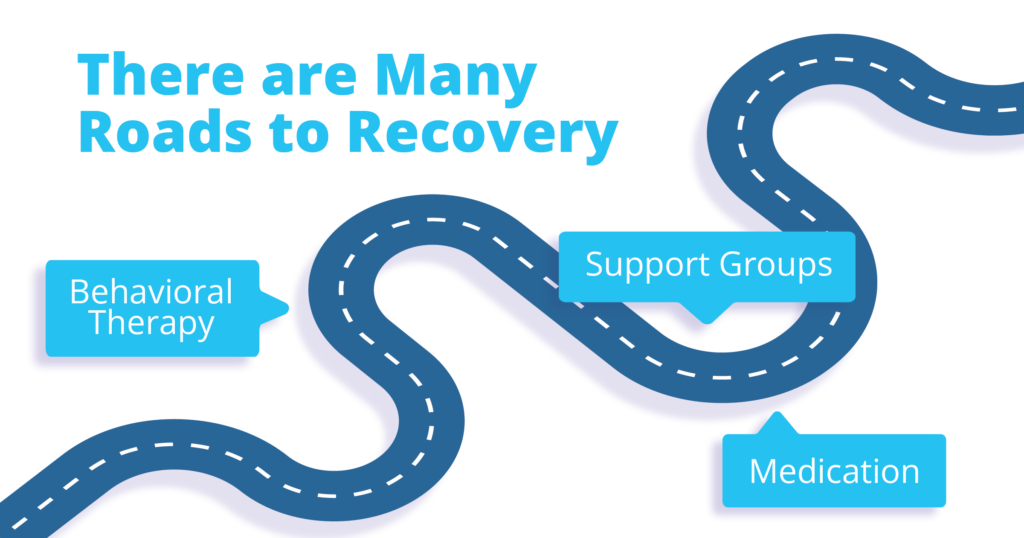
Frequently Asked Questions
What are five types of therapy that can be used to treat alcoholism?
The five most common types of therapy an alcohol treatment center will recommend are psychotherapy, cognitive behavioral therapy, dialectical behavioral therapy, motivational enhancement therapy, and more holistic approaches like yoga and meditation.
Psychotherapy involves therapists speaking to their clients in a conversational manner about problems and personal experiences related to their substance use. Cognitive-behavioral therapy has the goal of identifying negative behaviors and thoughts and replacing them. Dialectical behavioral therapy focuses on teaching people to live in the present instead of remaining in their past.
Motivational enhancement or motivational interviewing therapy is designed to encourage a patient to stay motivated in their recovery journey and prevent relapse. Lastly, holistic treatments like yoga and meditation can help manage cravings and help the individual stay focused throughout their recovery process.
What are some treatment options for someone who is suffering from alcoholism?
The most common alcohol treatment options include talk therapies, attending group therapy sessions and mutual support groups, as well as medication that can be taken alongside therapy. These counseling sessions can help a person learn from their behaviors and help make the necessary changes toward a healthier life.
What is the most effective treatment for alcohol dependence?
The three most effective treatment medications for alcohol addiction include disulfiram (Antabuse), naltrexone (Trexan), and Acamprosate (Campral), all approved by the United States Food and Drug Administration (FDA) to treat alcohol dependence. It is believed that naltrexone works by blocking opioid receptors, which can reduce feelings of intoxication and prevent cravings. Disulfiram is used as a deterrent and will cause people to vomit or experience headaches when they go to drink alcohol. Acamprosate is another medication that works to reduce a person’s desire to consume alcohol.
What is the treatment for alcohol addiction?
Patients typically start off with a detox program that helps rid their bodies of all alcohol before living in a rehab center. Medical Detox is an important first step in the recovery process. The patient will then decide if they would like to be admitted into an inpatient treatment center or if they would receive outpatient care where they live at home. After receiving treatment from professionals at an alcohol addiction treatment center, it is highly recommended that a patient attends support groups like Alcoholics Anonymous or a 12-step program to keep them in the right direction.
The Haven Can Help
If you or a loved one is struggling with alcohol use disorder, The Haven in Southern Florida is here to help. Our treatment center has treated thousands of patients, offering one of the most comprehensive and effective alcohol detoxes available. Our team of doctors, nurses, and therapists is dedicated to providing high-quality care as well as the best treatment plans possible for your recovery.
At The Heaven, located in West Palm Beach, we offer rehab and detox programs as well as residential treatment options. Our treatment facility also offers programs for first responders as well as other professionals.
When you are ready to take the first step, give The Haven Detox a call on the phone at (561)-328-88627 for more information.



